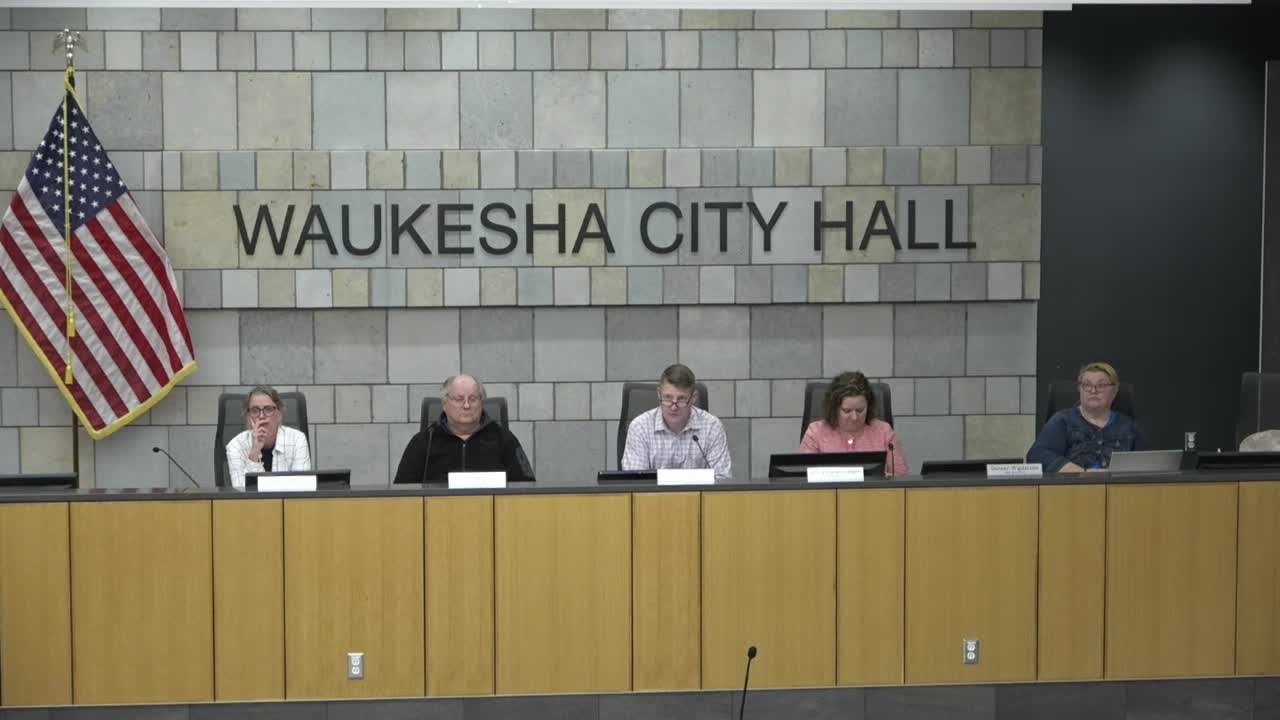Finance Committee recommends 2026 operating budget; proposal passes committee after failed pay amendment
Get AI-powered insights, summaries, and transcripts
Subscribe
Summary
The Waukesha City Finance Committee voted unanimously to recommend the 2026 operating budget with a general fund of $84,127,448. An amendment to cap top‑tier employee merit increases at 3% failed 3–2 after extended discussion about turnover, recruitment and fairness.
The Waukesha City Finance Committee on Oct. 28 voted to recommend that the Common Council adopt the 2026 operating budget, with a general fund total of $84,127,448.
City staff presented the budget overview and revenue/expense breakdowns, and committee members discussed staffing, communications savings and employee compensation before voting. The committee approved a motion recommending the budget as presented and without amendments; the recommendation will be considered by the full Common Council at its first November meeting.
During discussion, a motion by Alderman Lemke would have capped the top tier merit increase for non‑represented employees at 3% (the proposed level for some represented groups was 3.5%). Lemke said the change was intended to provide savings for taxpayers and parity with lower‑income households: “shavings make a pile,” he said, arguing incremental savings matter for residents on fixed or lower incomes. The amendment was seconded and debated.
Tony, a city staff member who addressed staffing trends, told the committee that turnover rose in recent years: “in 2024, we saw about a 14% turnover rate, which is about 75 positions,” and that the rate has improved to about 7.6% more recently. He and Joe Scherer, city staff, explained that the city budgets full authorized positions but models a modest unspent personnel amount in projections.
Committee members opposing the amendment said limiting the top‑tier increase for non‑represented employees would send the wrong message to experienced staff and could worsen recruitment and retention. Alderman Wigderson said the amendment would “suggest that their work is somehow less valuable,” and Alderman Moulton called it “arbitrary second guessing of staff.” Alderperson Helenslavin and others noted the city negotiates contracts separately with represented employees and emphasized competitiveness in the labor market.
The committee held a voice vote on the amendment; the clerk announced the amendment failed by a 3–2 margin. Committee members then voted by voice to recommend the full 2026 operating budget as presented; that recommendation passed unanimously.
Clarifying fiscal details discussed in committee included a projected communications consolidation expected to save “tens of thousands of dollars” by combining publications, the workspace/publication printing cost previously estimated at about $40,000–$45,000 annually, and vacancy/turnover effects baked into payroll projections. Committee discussion quantified the fiscal impact of Lemke’s amendment as a total of $65,526 across funds and a general fund reduction of approximately $57,002.64 if adopted; staff confirmed that amount during the discussion.
The committee chair said the recommendation will be forwarded to the Common Council and that a public hearing on the budget is scheduled for Nov. 4. The next Finance Committee meeting was scheduled for Nov. 11.
